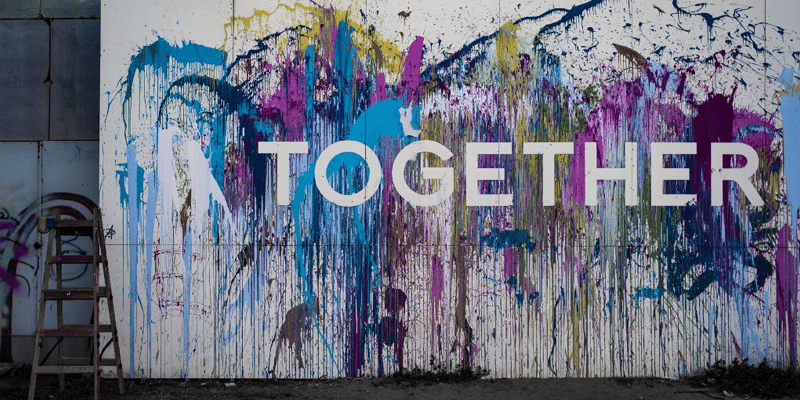Photo by Adi Goldstein on Unsplash, Posted by Nellie Mae Ed. Fdn.
2020: a year unlike any other, plagued by a pandemic, death, job loss, evictions, and the continued murders of Black people at the hands of law enforcement. And at the same time, we have seen communities come together, respond with strength and love to demand and move forward through these momentous times.
This year, we’ve been reminded of just how fragile our social structures are — folding at the hands of a virus, disproportionally causing harm and suffering to Black, Brown and Indigenous people across our nation.
Educators have been thrust into crisis schooling, forced to completely change the way they engage and interact with young people.
With the closure, disruption, and under-resourcing of the country’s schools, more people woke up to what many have known for so long — that schools indeed are hubs for social supports: not only places to learn, but places where young people receive healthcare, nutrition, mental health supports, and allow caregivers to participate in the workforce. Educators have been thrust into crisis schooling, forced to completely change the way they engage and interact with young people.
At yet, despite the enormous challenges, so many educators have risen to the occasion — organizing and strategizing to creatively deliver content and learning experiences to their students, in spite of personal sacrifices they often have had to make. While we see many young people suffering from isolation, Zoom fatigue, hunger and much more, and we are also seeing accounts of young people who are finding comfort in home learning environments with less rigidity and the comfort to be themselves.
Returning to normal is not good enough, because normal was never enough.
It’s been a challenging year for so many reasons, but we know that returning to normal is not good enough. Because normal was never enough. But, we have hope: and here’s why. Our grantee partners across the region, coupled with so many others, remain hopeful, determined and set on ensuring that we leave this region — and this nation — better than we found it.
In Chelsea, Massachusetts, a city devastated by COVID-19, Gladys Vega and her team at La Collaborativa have worked tirelessly to ensure community members have the supports they need to get by. Young people at Connecticut groups Hearing Youth Voices, Students for Educational Justice, CT Students for a Dream and Citywide Youth Coalition were instrumental in pushing the state to become the first in the nation to require high schools provide courses on Black and Latinx studies. The Equity Institute in Rhode Island took a step further in diversifying the teaching pipeline in the state by launching their inaugural class of “EduLead Fellows” — teacher assistants and support professionals committed to obtaining a bachelor’s degree and teacher certification. The Movement for Black Lives has spearheaded protests and action that have led to police reforms across the nation and prompted corporations to take time to examine the structural racism within their organizations. And so many other partners have led important work around the region and nation to uproot structural racism in our education system and ensure equitable access to excellent, student-centered public education for all young people.
As we move into 2021, we look forward to continuing to work hand in hand with our grantee partners to ensure that all young people, especially young people of color, have access to an equitable and excellent public education. We know it won’t be easy, but because of so many of our partners — we have hope.

